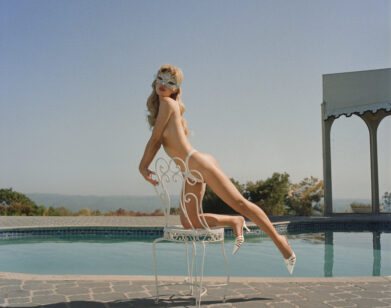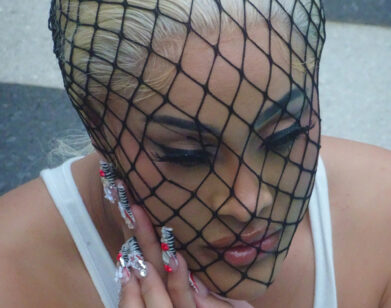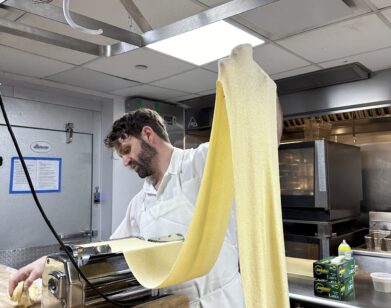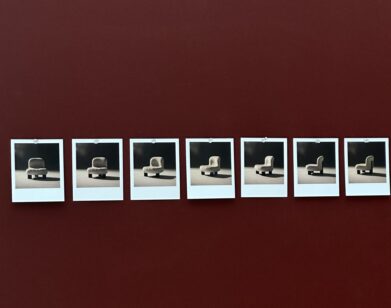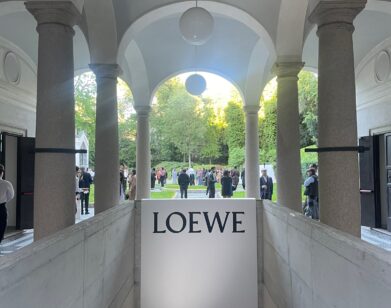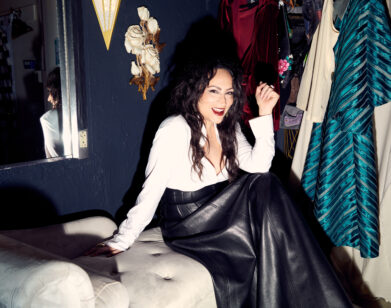Cinemax’s Starr
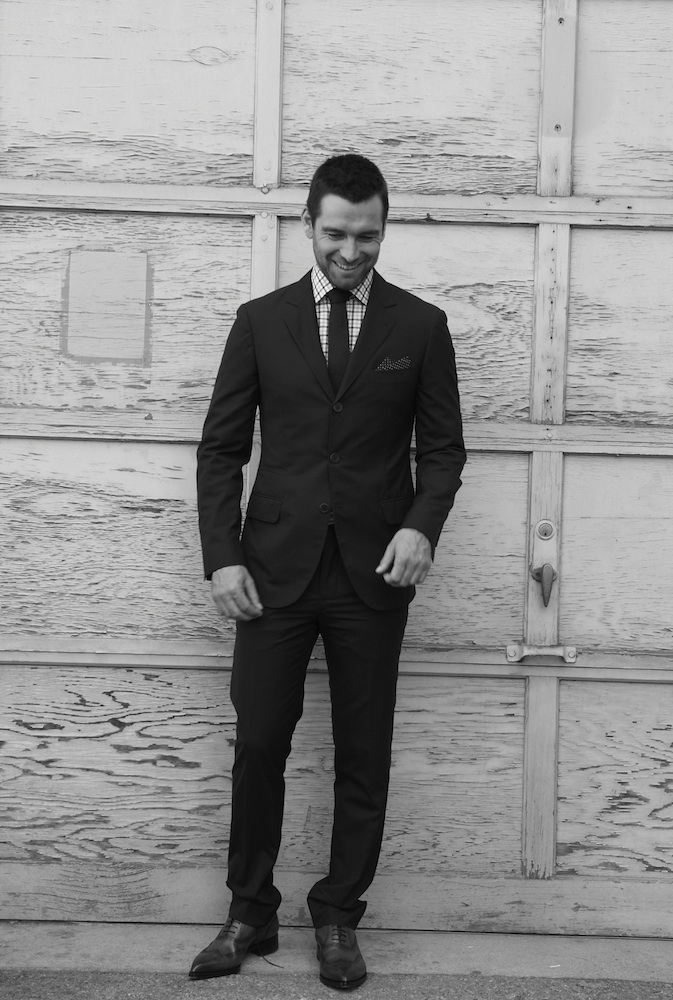
ABOVE: ANTONY STARR. PHOTO COURTESY OF ERIC WILLIAMS.
Cinemax is reinventing itself, and at the heart of its original content is Banshee. Although only in its second season, Banshee is comfortable with its identity. The Cinemax show is purposefully brash and campy: the violence is bloody, the sex scenes are lusty, and a third of the characters are Amish. The willingness of Banshee to embrace these extremes is what makes it so enjoyable to watch.
If you didn’t catch the first season, the premise is as follows: upon his release from prison, a conman (played by Antony Starr) decides to track down his ex-girlfriend and partner in crime. He finds her living in small-town Pennsylvania with a new name (Carrie), respectable husband, and two teenage children (Max and Deva). In a less-than-wise attempt to get Carrie back, he assumes the identity of the new (and newly murdered) town sheriff, Lucas Hood. To raise the stakes, the town is controlled by a corrupt, formerly-Amish businessman and Carrie didn’t change her name to hide from Lucas—she’s hiding from her ever more corrupt father, known only as Rabbit.
Banshee is New Zealander actor Antony Starr’s first American television show. We spoke with Starr while he was visiting home before the premiere of the show’s second season.
EMMA BROWN: Your character ended Season One in a bit of a pickle. We learn that the real Sheriff Hood has a son who, presumably, might reveal Lucas’ secret.
ANTONY STARR: The season ends with the cage having been well and truly rattled. Effectively, at the end of the season, Lucas has committed suicide by switching himself out for Max. Then, he’s woken up and he’s conscious again and there’s a whole new set of problems to deal with, from the potential appearance of Young Master Hood to where does he go? Where do things lie when the dust has settled?
I think people who have already found the show will be pleased with what we serve up, and those that are new to the show in Season Two should hopefully respond to it. You refine what works and what doesn’t work so much in Season One. Then, you get to really work on deepening the characters and the overall premise—really making things work and play to their strengths.
BROWN: Were you greenlit for a second season before the first season aired?
STARR: It was very soon after. The network, Cinemax, they’re actually extremely supportive of the shows that are up and running and performing for them.
BROWN: What advice would you give to Lucas if he were your friend?
STARR: I don’t know if I would ever have a friend like that, to be honest. Ultimately, he’s a murderer, and I try to avoid them whenever possible. I don’t think it really matters what you say to him because he doesn’t really listen to anyone. He does his own thing. Life has served him a set of circumstances that have taught him the only way to get something done is to do it yourself. Everyone else is out to get you. I’d probably keep it to myself and give him as wide a berth as possible.
BROWN: Carrie has a great dislike for her father. Will we find out more about their backstory?
STARR: I think you get a pretty clear sense in the first season of how overbearing of a character her father is. The fact that he’s orchestrated Lucas’s going to prison—set them up—and then continued to affect his life while he was behind bars by having him tortured every day. It gets very Freudian, that relationship. Very father-in-love-with-daughter, not necessarily in a healthy way. It’s a very strange bond that they share and ultimately one that is going lead to some kind of quirky, Greek-esque mashup of feelings and actions that most of us would look at and go, “That’s pretty disgusting.” [laughs] It’s pretty creepy. I’m quite a prudish guy and some of the stuff that I see going on there, I just look away and think “cancel, cancel, cancel.”
BROWN: Obviously there’s a lot of sex on the show. Are you ever like, “But I was just naked last week! Do I have to do this again?”
STARR: Yeah. Those scenes, I don’t know any actor that doesn’t hate them. Unfortunately part of pulp is that there is sex, there is violence. It’s not a kids’ show. It’s an 18-and-over audience—like anything cable. I see some things in Game of Thrones that turn my hair gray. It’s the way the industry has gone. Luckily we’ve got a great cast and really a fantastic bunch of people that make all that sort of stuff as painless as it can be. It’s never going to something where you’re having a wonderful time. It’s a very intimate thing and a very intimate space to be put into—that’s usually a space reserved for one. To have someone else in that proximity is pretty jarring, but we’re all in the same boat and we’re all experiencing the same anxieties.
BROWN: You shoot in Charlotte, North Carolina. Is there a community of TV shows around there?
STARR: There are a few shows down there, but we’re so busy that we don’t really have time to fraternize with any of the other productions. A lot of them are in Wilmington. Homeland shoots across the car park from us. I would say the lot, but it’s not a studio. It’s literally a car park. It’s pretty small-town America. Most of the productions that end up going there—they hire crew from around the area, but not that many people from Charlotte itself. Within the show you have a really tight community, because you’re working so much and you connect because you’re all out of place. You’re all out of your comfort zone and geographically out of place.
BROWN: And this is your first American show.
STARR: Yeah—the first one in America. I’ve been involved with a few productions back in the day when New Zealand had an interest in being competitive around tax rebates. Not to get political, but when we were a bit more of a destination for overseas productions a few American things came down here. I was tied up in New Zealand for a long time—nine out of 12 months a year —playing two characters on a TV show that went for six years. I had my work cut out. It was a massive workload.
BROWN: Did you play twins?
STARR: I was twins—a dumb one and a smart one, to put it simply. That was great. It was a lot of fun to do that, but it did cut me out of going overseas to work and there was very little that happened here over the Christmas period when we weren’t shooting. I had to wait for that to finish before I could really get out of New Zealand and start off over in Australia and make my way over to the States. I’ve been very fortunate to work in things the way I have. I haven’t spent a huge amount of time on the ground in L.A. I put a tape down in Sydney to get this job and they flew me over and screen-tested me. We’ve got people at the top of our food chain that were very clear and specific about what they wanted, and recognized what they needed when it was in front of them. The audition process can be horrendous, but in this case, these guys were really sharp. They were kind of clinical about it, really, which was great for me because you don’t get jerked around so much.
BROWN: I grew up in London, and we had quite a few of the Australian soaps, but I don’t remember any New Zealand shows. Do they get exported anywhere?
STARR: They do, but there’s not a lot of domestic content here that makes it off shore. We have a show called Shortland Street, which I think streams in a couple of places overseas, but I don’t think it gets to London. The Aussie stuff tends to travel a little better.
BROWN: Do you get all the Aussie stuff in New Zealand?
STARR: God, yes. We get the good, the bad, and the ugly. Every piece of television laundry that Australia has to air, we get it. Living in New Zealand, because it’s so small in the industry, there’s so little content made locally. We really have to look outside of the country to find anything to put on our channels. We’ve only got five TV channels. You’ve got pay cable, but that’s not a whole lot more. There’s a couple of sports stations in this country and a couple of movies, but it’s a really dinky country. We’re dependent on buying overseas productions and television shows. A lot of the time they come in packages, I think. You take the hit show and you take a couple of other unloved children that they want to get rid of along with the hit show.
BROWN: Do you see cinema or television becoming a bigger industry in New Zealand?
STARR: Well, we’ve got a tricky situation down here. You go to around the 2000 mark when Peter Jackson was releasing the Lord of the Rings trilogy, and that really put New Zealand on the map. That really identified New Zealand as a destination for big productions. For a while, there was this golden period where our dollar was weak. We’ve got a really fantastic crew set up down here. We’ve got a lot of really skilled people who are English speaking. The infrastructure is good. It’s very contained, so everything’s relatively accessible. That worked in our favor for a long time. But then the rest of the world jumps on and catches up. Now you’ve got countries like Thailand, Eastern Europe, South Africa, and certain states in America that are offering really substantial tax rebates to entice productions. Our dollar got stronger, and for some unknown reason our government—I don’t think it’s ignorance because the problem’s been cried from the rooftops—they are unwilling to change our tax rebate situation. I’ve been away the last couple of years in Australia or America, but I came back and a lot of really talented people in New Zealand that were working when I left are finding day jobs now. The industry’s just dried up.
BROWN: Is your family still in New Zealand?
STARR: Yeah. They’re all down here and that’s been tough. I think the film and TV industry—the acting world—has a tendency to attract a lot of people for the wrong reasons; reasons that are less than artistic. [laughs] It has a tendency to be pretty superficial, and pretty shallow and fake. I think what New Zealanders and Australians—and the English, I guess—have to offer is that we don’t carry a lot of that baggage. We come over and we’re pretty grounded. But on the flip side of that, you end up in a very unfamiliar environment being treated in a way that’s a little bit surreal. It’s great to come home and reconnect with family and friends that really don’t care what you’re doing for a job because you’re just the annoying little brother or the idiot friend.
BROWN: What was your first acting professional job?
STARR: I think it was a TV ad for a chocolate bar that has since gone belly-up. If I remember rightly, it was a horrible chocolate bar, so it kind of deserved to. I think it paid me $5,000. I was 18 and that was more money than I had ever seen in my life. I was ecstatic with the whole thing.
BROWN: Last year, you were in the Australian film Wish You Were Here with Joel Edgerton and Teresa Palmer. I really liked that movie.
STARR: I think it came out great. Those guys are phenomenally talented and they’ve really got their hats and heads in the right space. Obviously Joel is doing great everywhere. I only happened on the audition for that because I was in Sydney at the time. I’ve kept in touch with those guys, and I can’t wait to work with them again because it was such a positive experience. They’re the kind of people that you look at and you want all the good things that can happen in the world to happen to them.
BROWN: Is it easier to do an American accent, because it’s quite different from your accent, than to do an Australian accent, which is only slightly different?
STARR: We kind of get away with it. It sounds vaguely the same, so it’s easy enough to blank through it. But the American accent is a little bit tricky. We grew up with American TV shows, so we’ve had a lot of exposure to it and that helps, but there’s little nuances and little details. Sometimes there’ll be just a phrase or couple words that are really difficult to get your mouth around. At the end of every season we go over and revoice anything that has sound issues, including my kiwi accent coming out. In the first season there was quite a lot of that, particularly early on. But in the second season, I think I only needed three or four.
BROWN: Is there a particular word that trips you up every time?
STARR: Yeah, “girlfriend.” I can’t say that. I had to say it about three or four times somehow over the course of the two seasons. I never realized that word comes up so much. That’s a really curly one for me.
BANSHEE SEASON TWO IS CURRENTLY AIRING FRIDAYS ON CINEMAX.

